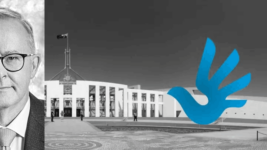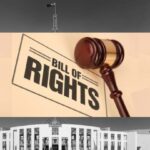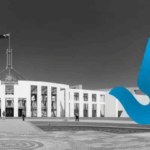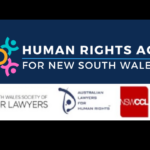The Stage Is Set for Federal Labor to Deliver on Rights Protections for the People

Events over recent years have brought it to the attention of an increasing number of people that those living in Australia suffer from a distinct lack of federal rights protections, and, for the most part, that continues at the state and territory level.
Indeed, these events, perhaps better described as crises, have resulted in greater awareness around this, as many raised on American television who’d simply assumed they were protected suddenly saw their illusory rights dissolve due to the actions of others and then found there was no recourse.
An Albanese government launched inquiry into rights protections is about to deliver its findings, and Labor announced its establishment on the back of the Australian Human Rights Commission releasing a position paper on a Human Rights Act (HRA), which are both fortuitous signs.
Of the two majors, Labor has always been more likely to consider a HRA. Yet, then PM Kevin Rudd rejected one in 2010, after an inquiry.
PM Anthony Albanese, however, has just engaged in a rare instance of listening to the people, as he’s determined to review proposed stage three tax cuts.
So, who knows what’s coming on that front?
But, according to Civil Liberties Australia (CLA), one thing is sure: ever-rising concerns around the dearth of local rights protections has further resulted in campaigns to see rights enshrined at the state and territory level, which are likely to come to fruition.
Nothing to fall back on
“The reason, Civil Liberties Australia believes that so many people are in favour of a ‘bill of rights’ now is that they have seen their rights washed away in a torrent of obsessive zeal and political-bureaucratic control during the COVID pandemic,” said CLA chief executive Bill Rowlings.
“We were locked down, told not to go to work, forbidden from going overseas, in some cases prevented from visiting sick and aged relatives in care homes and even unable to attend their funerals,” he continued.
The rights advocate recalled the descent into the absurd, as police officers fined people for driving to a neighbouring suburb or for sitting alone eating a kebab on a park bench. And he adds that rights infringing laws, such as those reversing the onus of proof, are undermining centuries-old rule of law.
The Albanese government has started the process of cleaning up injustices, with the creation of the National Anti-Corruption Commission (NACC).
However, to stop pollies bestowing themselves with invasive powers that wouldn’t pass in other Five Eyes nations, which all have rights protections enshrined in law, a HRA is needed.
“Since COVID, from about 2020, trust and confidence in politicians has been down-sliding rapidly,” Rowlings continued. “But what we also need is a way of enforcing the little guy’s rights against the wrongdoing of politicians passing bad laws and against careless bureaucrats.”
HRA likely recommended
Since Australia has existed for the last 123 years without rights protections, it might appear that the nation can continue to get along without them. But to garner an understanding of how drastic this lack is, this western democracy is the only such nation without rights protections in federal law.
“The eagerly-awaited report on the future of what Labor calls its ‘human rights framework’ for Australia will be handed to the attorney general in late March, just weeks from now,” Rowlings told Sydney Criminal Lawyers
CLA had been petitioning parties behind the scenes on securing a HRA on election of Labor, when Morrison was in. And Rowling considers the Parliamentary Joint Committee on Human Rights will recommend an Act, and hopefully, the committee process is strengthened and made binding.
The committee reviewed 319 submissions, 309 of which were in favour of a HRA.
The US has had a bill of rights enshrined in its constitution since 1791, whilst Canada, the United Kingdom and New Zealand have all enacted statutory Human Rights Acts, which is the form that would be contemplated federally.
The AHRC recommends that the HRA be based on a dialogue model, which would open up exchange between the three branches of government – the executive, the legislature and the judiciary – with requirements that laws be based in accordance with rights and for the judiciary to ensure this.
Progressed nationwide
In terms of enacting rights law in jurisdictions other than the Commonwealth, the ever-progressive ACT government passed its Human Rights Act 2004 (ACT), which was followed by Victoria’s Charter of Human Rights and Responsibilities 2008 (VIC) and in Queensland, its Human Rights Act 2019 (Qld).
The CLA has been meeting with stakeholders from those involved in the campaigns to see HRA enacted in the Northern Territory, South Australia, Western Australia and Tasmania over the last two weeks. And a campaign to establish a HRA in NSW got underway in mid-2023.
As Rowlings puts it, “people realise the system of rights and liberties is being abused by bureaucrats and legislators, and under state law, as well as federal, there’s a real groundswell of kicking back and seeking human rights acts” in the various states and territories.
SA has an inquiry underway, whilst a party focused on progressing rights is going to run candidates in the next NT election. A renewed HRA campaign is getting underway in Tasmania with Greens and Labor support, whilst in WA, human rights and First Nations lawyers are leading the charge.
The Human Rights for NSW campaign has forty alliance members, with strong representation from rights and liberties groups, along with the legal fraternity. The coalition of organisations also has the support of the NSW Society of Labor Lawyers, with that party currently holding office.
Undermining rights protections
The ACT and Victorian rights legislation have both been applied to cases regarding potential rights violations in correctional settings. Whilst Queensland, being the latest jurisdiction to provide protections, last year twice sullied the worth of such legislation in relation to youth facilities.
Queensland Labor initially overrode its HRA to pass laws permitting the enactment of a youth breach of bail offence, and it blatantly disregarded its own laws, via a proper legal mechanism within the legislation, to ensure children and teens can be locked up in adult watchhouses.
“There will always need be an emergency clause in rights law that allows for override in some emergencies, like war for example,” Rowlings explained. “But Queensland abandoning principles instant coffee-style, in the face of misbehaving Aboriginal youths was a seriously flawed step.”
Rowlings recommends future HRAs stipulate that an emergency power should only be overridden after wider public debate, and he added that Queensland ministers have shown governments can’t be trusted and that’s why all jurisdictions without rights protections direly require them.
“The ACT has recently amended its law, after two decades, to include new rights, permitting conciliation and a tribunal hearing for every clause in the HRA if there is a breach,” he explained, with the ACT rights commission assisting in disputes that can then be taken to the tribunal if needed.
And of the protections that do exist in various jurisdictions across eastern Australia, the CLA chief executive said, “Those laws aren’t yet perfect, but they are better than no rights protection at all.”







